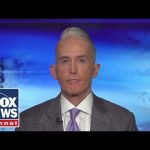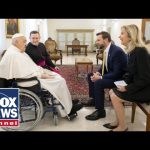The Catholic world is mourning the passing of Pope Francis, who died at age 88 following a series of severe health crises that culminated in a fatal stroke and heart failure. His death marks the end of a papacy defined by both global outreach and controversial reforms, leaving Catholics and observers reflecting on his complex legacy. Despite his well-publicized humility and efforts toward inclusivity, Pope Francis’ leadership was not without its critics, especially among those who value tradition and doctrinal clarity.
Pope Francis, born Jorge Mario Bergoglio in Buenos Aires, made history as the first pope from the Americas and the first Jesuit to ascend to the papacy. He quickly became known for his unorthodox approach, eschewing many of the traditional trappings of the office in favor of a simpler lifestyle. While many praised his focus on the poor and marginalized, others saw his style as a departure from the dignity and solemnity that had long defined the papal office. His tenure was marked by a push for decentralization within the Church and a willingness to challenge established norms, often stirring discomfort among more conservative Catholics.
Throughout his papacy, Francis championed a range of progressive causes, from environmental activism, most notably through his encyclical “Laudato Si’”—to opposition to the death penalty and a more open approach to interfaith dialogue. Yet, these priorities sometimes came at the expense of clarity on core Catholic teachings. His statements on issues such as same-sex blessings and the role of women in the Church led to confusion and division, with many faithful Catholics expressing concern about the erosion of traditional doctrine and the risk of diluting the Church’s moral authority.
Francis’ final years were marked by declining health, including repeated hospitalizations for respiratory and intestinal issues. His struggles with pneumonia, kidney insufficiency, and mobility limitations were well-documented, culminating in a critical respiratory crisis and ultimately his passing. Despite these challenges, he continued to make public appearances and remained engaged in Church affairs until the end, a testament to his resilience. However, his health woes also reignited debates about the need for stronger leadership and the importance of continuity in the Church’s mission.
As the Vatican prepares for the transition to a new pope, many Catholics are hoping for a return to a more traditional, doctrinally firm leadership. The Church now faces the task of healing internal divisions and reaffirming its core teachings in a world increasingly hostile to timeless truths. While Pope Francis’ legacy will be debated for years to come, his passing is a pivotal moment for the Catholic Church—a time for reflection, renewal, and, perhaps, a recommitment to the enduring principles that have guided the faith for centuries.




